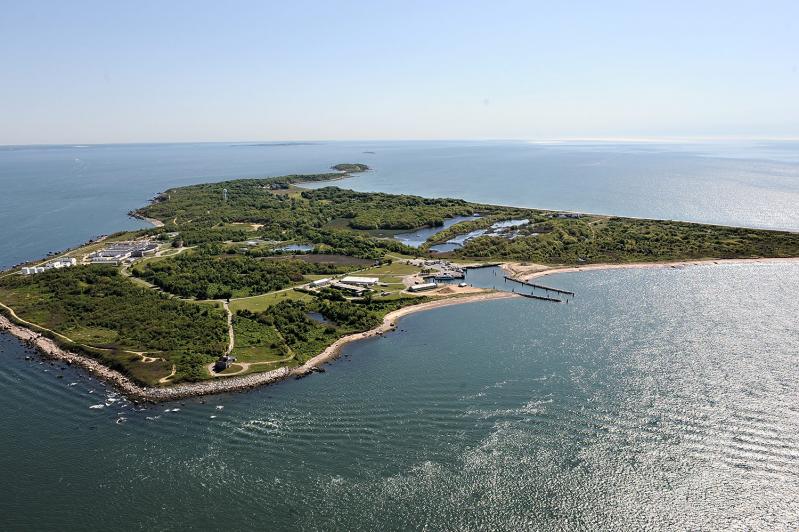In a far-reaching, $1.65 trillion package of federal legislation signed by President Biden last Thursday, the campaign to permanently preserve Plum Island took another step forward: Congress has officially invited stakeholder agencies to come to the table for a joint briefing on the island’s future.
The Preserve Plum Island Coalition announced that the legislation — which was dubbed “omnibus” for its inclusion, in one fell swoop, of many different types of provisions, such as medical research, disaster recovery, veterans’ health care, and money for Ukraine — includes language that indicates support “for the permanent conservation of Plum Island for the protection in perpetuity of its natural and cultural resources.”
Environmental and civic activists, with the support of elected officials including Senators Chuck Schumer and Kirsten Gillibrand and former Representative Lee Zeldin of New York and Senators Richard Blumenthal and Chris Murphy of Connecticut, have been pressing the federal government to reverse its initial position on Plum Island for more than a decade.
The 840-acre island, which is home to a historic lighthouse and the Revolutionary War and World War II-era Fort Terry military base, is owned by the federal Department of Homeland Security. It was originally to be sold off as excess land following the planned decommissioning of the famed Plum Island Animal Disease Center sometime in 2023, after about 70 years of operations. The money was to have partially offset the government’s cost to build a new biodefense facility in Kansas before preservation efforts gained momentum. Plum Island was officially pulled off the auction block in December 2020, with $18.9 million allocated in a federal spending bill that month toward rehabilitating the island after the research center is closed.
Surveys and studies of the island and the waters surrounding it have documented hundreds of species of animals and plants, including more than 100 “species of conservation concern.” It is one of the largest seal haul-out sites in the state. Plum Gut, the turbulent waterway between Plum Island and Orient Point, is one of the most abundant coastal habitats for fish in the region.
The Preserve Plum Island Coalition, made up of 121 civic and environmental groups, has urged President Biden to deem the island a national monument under the 1906 Antiquities Act. The entire Suffolk County Legislature has supported the effort as well, and the Montaukett Indian Nation has attested to the island’s role in the cultural heritage of its tribe.
“This significant action by Congress brings us one step closer to our goal of designating Plum Island a national monument for the purposes of ecological conservation, historical preservation, and the discovery and celebration of our shared cultural heritage,” Leah Lopez Schmalz, president of Save the Sound, which coordinates the Preserve Plum Island Coalition, said in a statement. “Plum Island truly is a national treasure. We are thankful that our leaders in Congress recognize that fact and have declared their support by calling for a Congressional briefing.”
Suffolk County Legislator Al Krupski, in whose district Plum Island is situated and who authored the legislature’s Plum Island letter to President Biden last year, said in a release that “we owe a debt of gratitude not only to the coalition, but to those elected officials who have worked towards the preservation of Plum Island on the federal, state, and local levels. The appropriations language in the omnibus spending bill for Plum Island is clear and reflects the value of preserving this historic and ecologically important island and its significance for the entire nation.”
According to the legislation, Congress wants to hear from the Department of the Interior, the Department of Homeland Security (D.H.S.), and the General Services Administration “regarding the closure and disposal process for the island’s permanent conservation, the possibility of interim ecological management, and options for permanent ownership of Plum Island, including management of and partnerships with state, federal, and tribal entities, potential costs for managing the island, the status and schedule of cleanup and monitoring, and the procedures for a subsequent owner to invoke D.H.S.’s responsibility to ensure that D.H.S.’s certification that its remedial actions on Plum Island protect human health and the environment remains valid.”
In a statement, Southold Town Supervisor Scott Russell called the omnibus legislation “a vital step to reach our goal of ensuring the preservation of Plum Island. We will continue and not stop until we are successful. This moves us closer to that goal.”




